I'm starting to working on ASP.NET using MVC. I writing to action results, one of them is a HTTP GET and the another HTTP POST
[HttpGet]
public ActionResult DoTest()
{
Worksheet worksheets = new worksheets(..);
return View(w);
}
[HttpPost]
public ActionResult DoTest(Worksheet worksheet)
{
return PartialView("_Problems", worksheet);
}

Now, Worksheet class has a property called Problems and this is a collection, but uses as an abstract class item.
public class Worksheet
{
public List<Problem> Problems { get; set; }
}
Here's my abstract class and one implementation
public abstract class Problem
{
public Problem() { }
public int Id { get; set; }
public abstract bool IsComplete { get; }
protected abstract bool CheckResponse();
}
public class Problem1 : Problem
{
...
public decimal CorrectResult { get; set; }
// this is the only property of my implementation class which I need
public decimal? Result { get; set;}
public override bool IsComplete
{
get { return Result.HasValue; }
}
protected override bool CheckResponse()
{
return this.CorrectResult.Equals(this.Result.Value);
}
}
I have right now, many implementations of Problem class, but I really need to get just one value of my implementation class. But it thrown the above image error.
What can I do to allow model binder recover that part of my abstracts classes